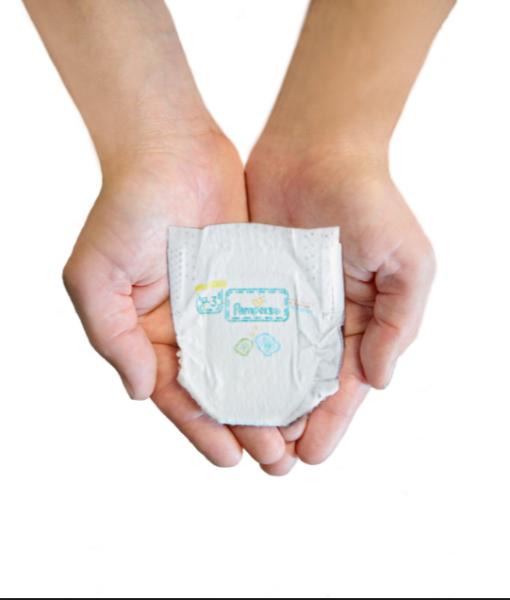
A baby will typically end their first year of life two and a half to three times heavier than its original birthweight. During that time, they will go through an estimated 2500 - 3000 diapers.
Diapers are designed with this dramatic growth in mind and companies sell multiple different sizes for the quickly growing baby. Diapers have traditionally started at the ‘newborn’ size which is designed for babies that weight less than 10 lbs (which likely fits the majority of newborns.) Some diaper companies make a ‘preemie’ size that is for babies weighing less than six pounds - a necessary category as roughly 10% of babies are born prematurely (before 37 weeks) in the United States.
But, what happens when your baby arrives early (really early), weighs one or two pounds, and the smallest diaper could engulf their entire body?
Now, Pampers and Huggies are both delivering solutions to this problem with a tiny diaper designed for the tiniest people.
Pampers was the first to design such a diaper that was introduced last fall, working with the people who need them the most - the nurses of the Neonatal Intensive Care Unit (NICU). The diapers, termed P-3 diapers, are designed for babies as small as one pound and are three sizes smaller than the ‘newborn’ diapers.
Just last month, Huggies followed suit, calling their diaper that fits babies that weigh less than two pounds the Little Snugglers Nano Preemie Diaper.
Although babies born this small only make up about 1% of all babies, they are a fragile group who require extra special attention. In a press release, Huggies states that "the diaper features gentle, specially-sized fasteners and a narrow, absorbent pad to provide a flexible fit so that baby can be comfortably positioned in a fetal tuck, with arms and legs close to the body. The soft, smooth liner and gentle leg gathers offer leakage protection without irritating fragile, underdeveloped skin.”
These companies both have a range of other sized diapers designed for babies that are born prematurely, with the P-3 and the Nano being the newest, and smallest, iterations of these micro diapers. The diapers are only available to hospitals and to be used in the NICU setting.
Anyone who has taken care of babies has changed a lot of diapers and when they don’t fit - it’s a pain. For NICU nurses who dedicate their lives to caring for our most vulnerable population - babies who are giving it everything they have just to remain alive - this means cutting down bigger diapers to fit their smallest patients. The fact that these nurses' jobs just got a little easier is good news, because there is nothing else that is easy about it.



